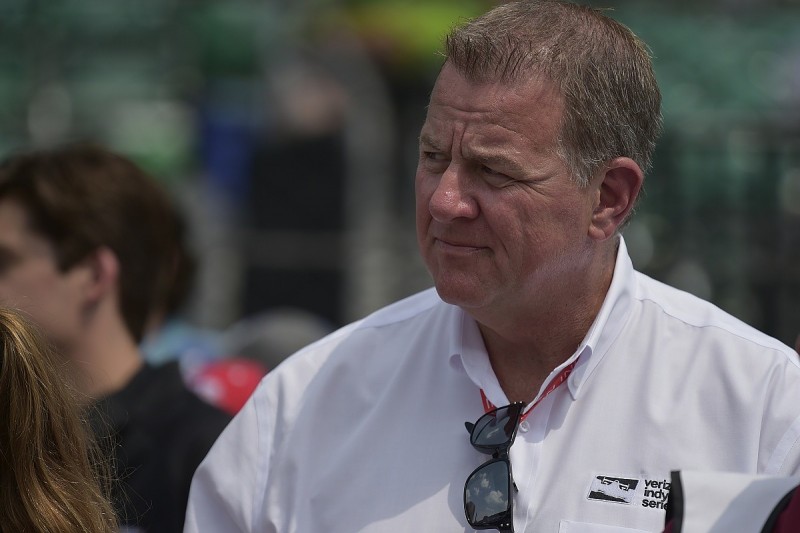IndyCar News: Series to reveal latest hybrid engine plans in next 30 days
IndyCar president Jay Frye admits the coronavirus pandemic may delay the introduction of a new chassis and hybrid motors, and will outline the latest plans in the next 30 days

Last August, IndyCar revealed the next-generation engines would incorporate hybrid units - although didn't specify what size the engines would be - and stated the introduction of these engines would be pushed back to 2022.
That would, theoretically, lead to both the next-generation engines and chassis coming online in the same season.
Asked by Autosport whether the timeline had been altered in the wake of the COVID-19 outbreak, Frye admitted that an adjustment was under consideration - and confirmed the next engines would be 2.4-litre units, up from the current 2.2-litre motors.
"The new normal is that nothing is normal," he said.
"The world's been shut down for a few months, so everything's been pushed back to a degree.
"Right now we're trying to figure out how to control what we can control.
"We feel very good about going forward with the 2.4-litre engines in 2022."
Frye says discussions have taken place with "several potential suppliers" over a third engine manufacturer joining at that time - with Ferrari boss Mattia Binotto saying the car maker is evaluating an entry.
He adds the series has not "necessarily chosen" an additional supplier yet.

"That's clearly the next step in that direction - obviously that part of the process has been delayed," he said.
"How does that look going forward? We have to have a Plan B if that does not go forward and that's one of the things we're working on now.
"That will become more clear in the next 30 days but we're certainly full speed ahead with the 2.4, and we're looking at what options there are with the hybrid piece and whether it's delayed or not.
"The original plan was to have the 2.4 engines in '21 and the new car in '22.
"Last fall, obviously we delayed the engine to 2022 and that made it a train-wreck going into '22 from an economic standpoint. So we started working on an idea of how we could break that up.
"We were hoping to have some conclusion on that by the end of May and we don't have that yet, based on what's going on in the world.
"But hopefully in the next 30 days we'll have that concluded and we'll have a good sustainable plan through to 2027."
Asked by Associated Press whether any IndyCar teams were suffering financial hardship as a result of the delayed season and cancelled races, Frye responded: "We've not heard a huge amount of issues yet.
"Part of that is because we put in our E-racing series, which filled a nice gap, and we had a great show on NBC in the Indy 500 window - which was very well received by the sponsors.
"We're very conscious that the economics of the teams matter.
"One of the things we've talked to teams about is what is the sweet spot for number of races? How can we make sure that we're accommodating as many of them as we can? We feel good about the 14 that we have."
Be part of the Autosport community
Join the conversationShare Or Save This Story
Subscribe and access Autosport.com with your ad-blocker.
From Formula 1 to MotoGP we report straight from the paddock because we love our sport, just like you. In order to keep delivering our expert journalism, our website uses advertising. Still, we want to give you the opportunity to enjoy an ad-free and tracker-free website and to continue using your adblocker.















Top Comments